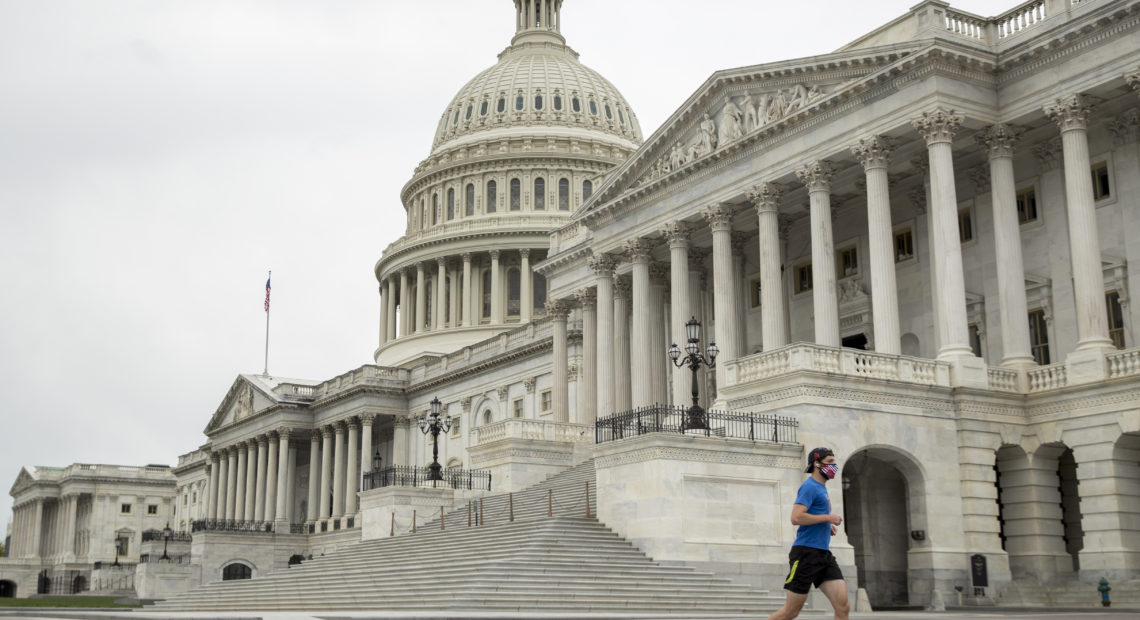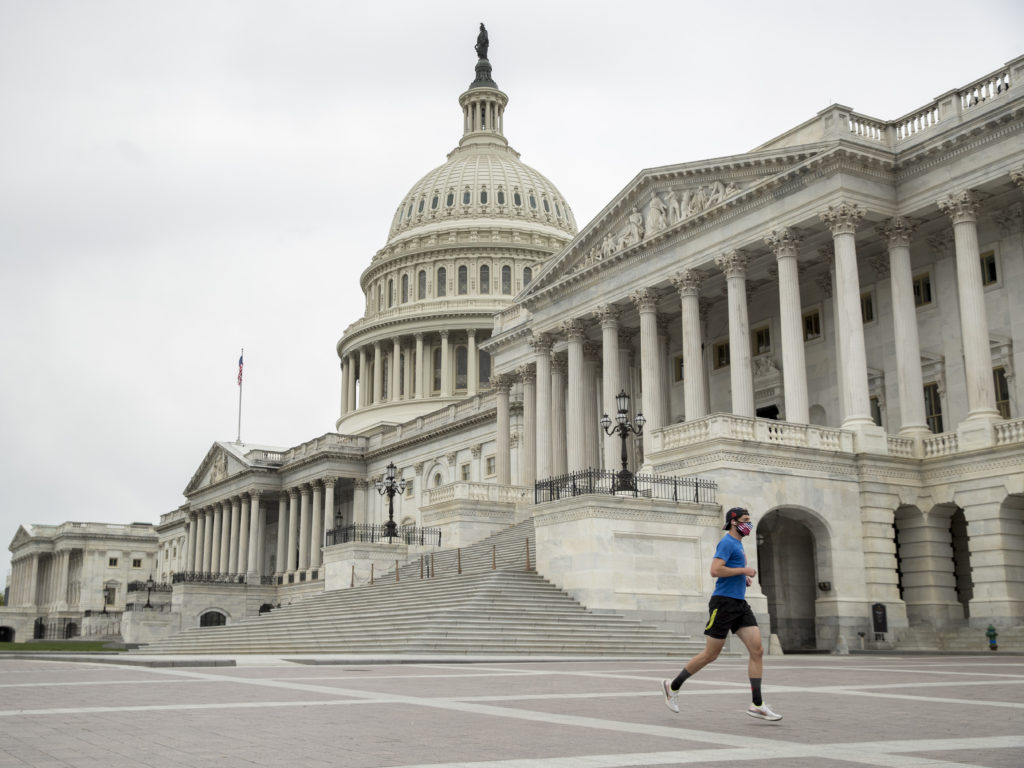
Senators Clash Over How Soon To Reopen The Economy
BY SCOTT HORSLEY
Members of the Senate Banking Committee squabbled Tuesday over how quickly the U.S. economy can rebound from the coronavirus shutdown and whether the federal government is doing enough to support struggling families and businesses in the meantime.
Treasury Secretary Steven Mnuchin and Federal Reserve Chairman Jerome Powell defended the government’s multi-trillion-dollar relief efforts to date. Powell stressed additional measures may be necessary to prevent lasting economic damage.

The Senate Banking Committee on Tuesday heard testimony about coronavirus economic relief efforts from Treasury Secretary Steven Mnuchin and Federal Reserve Chairman Jerome Powell. CREDIT: Andrew Harnik/AP
The challenges of reopening parts of the economy were underscored by the hearing’s format. It was held virtually, with both witnesses and senators on videoconference, though Mnuchin said he would have been willing to testify in person.
Ohio Sen. Sherrod Brown, the ranking Democrat on the committee, accused the Trump administration of pushing businesses to reopen prematurely, without adequate safeguards for workers.
“How many workers should give their lives to increase our GDP by half a percent?” Brown asked.
Sen. Pat Toomey, R-Pa., countered: “The longer that we continue a shutdown — when weeks turn into months — doesn’t that necessarily increase the risk that some businesses will fail, some jobs won’t be there to go back to?”
The treasury secretary agreed.
Mnuchin and Powell said the Fed’s emergency lending programs for midsize businesses and for state and local governments should be up and running by the end of this month.
Sen. Elizabeth Warren, D-Mass., complained that those programs — authorized by Congress with some $450 billion in seed money — do not including binding requirements that loan recipients keep workers on the payroll.
“We’re in a situation where 35 million Americans have filed for unemployment,” Warren said. “You’re in charge of half a trillion dollars. You’re boosting your Wall Street buddies and you are leaving Americans behind.”
Mnuchin disputed that characterization and said the terms of the lending programs had been negotiated with both Republicans and Democrats in Congress.
The treasury secretary also said the government is willing to take some risks in financing the emergency loans.
“We are fully prepared to take losses in certain scenarios,” Mnuchin said.
Powell reiterated his view that Congress may have to authorize additional relief spending to keep families, businesses and cash-strapped state and local governments afloat until the virus is under control.
“What Congress has done to date has been remarkably timely and forceful,” the Fed chairman said. “I do think we need to take a step back and ask, over time, is it enough? And we need to be prepared to act further.”
In addition to the Fed’s lending programs, the government has made hundreds of billions of dollars worth of loans to small businesses, which can be forgiven so long as most of the money is used for payroll. Mnuchin said he’s eager to work with lawmakers to give borrowers in that program more flexibility.















